How AFS Provides Sanctuary for Farm Animals Across the Southern U.S.
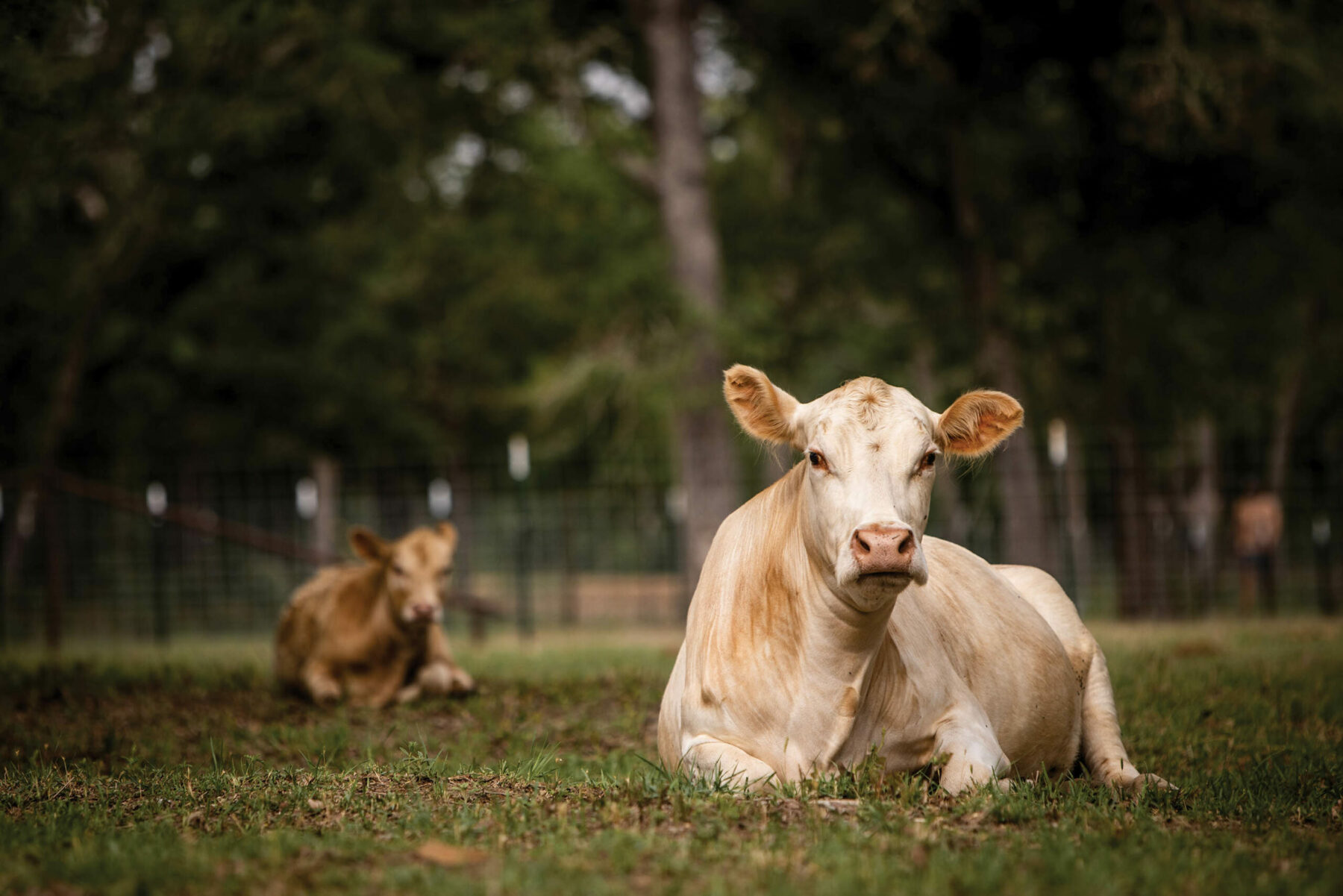
Austin Farm Sanctuary has been providing at-risk animals a forever home since 2016, and it all started by accident.
Located on 40 acres of land, AFS is a nonprofit that rescues farm animals from being sold into the meat, dairy or egg industry. Chris Fuller-Wigg, who co-owns AFS with his wife Angela, says they partner with other shelters and rescues to find homes for less at-risk animals, such as dogs, cats and horses.
“If they’re not at risk of being killed, we want to lean on the community to adopt them,” Chris says. “We’re a forever home for the (farm) animals we take in.”
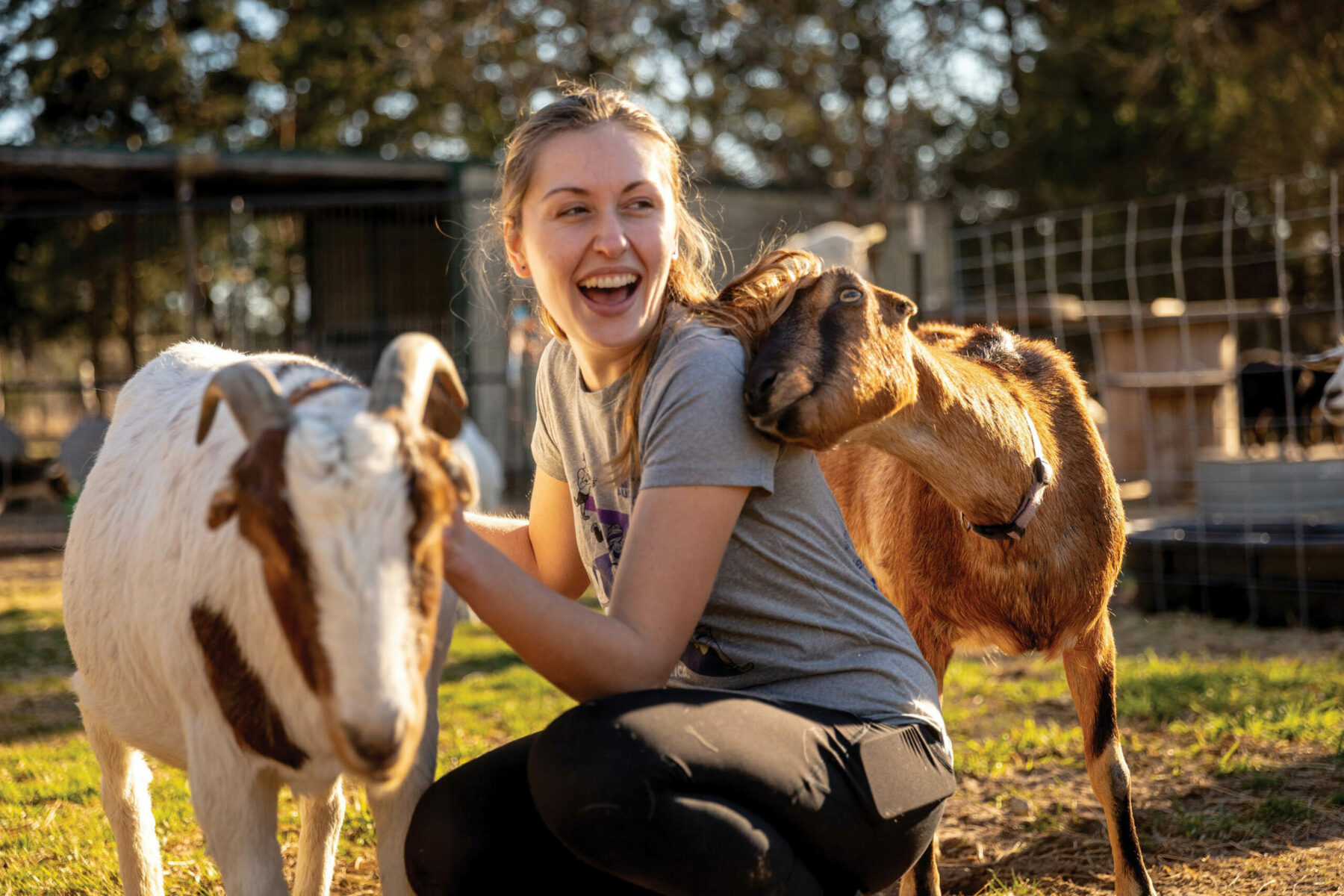
Chris and Angela have been vegans for years. After buying their first home in South Austin, they realized they could proactively help animals when they learned about two at-risk goats, Bertha and Cookie. The Fuller-Wiggs opened their then-half-acre backyard to the pair.
Three months later, they took in a pig, Doya, who was three days from being sent to auction and slaughtered.
“Having that mindfulness of farm animals was already on our radar,” Chris says. “When we found out Doya was in need, we realized there was something we could do for this entire group of animals.”
Today, AFS has almost 130 residents. They provide sanctuary for pigs, chickens, ducks, a tortoise, peacocks, goats, miniature mules and donkeys, cows, sheep, cats, and 13 dogs!
The Fuller-Wiggs also use AFS as a platform for the vegan lifestyle. Their events gather the community to enjoy plant-based foods, feed animals and make lifelong friends.
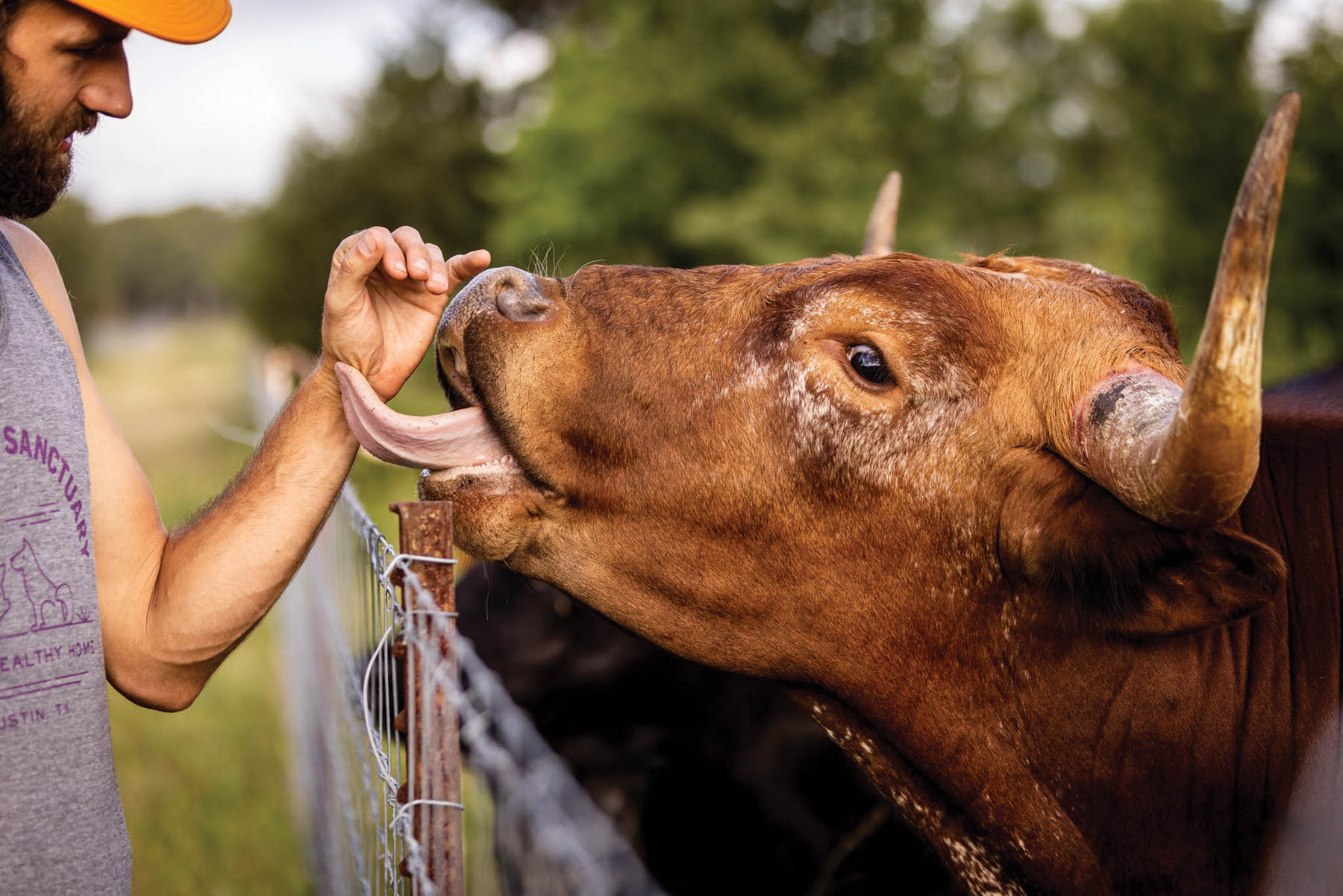
“Sometimes a vegan perspective can feel limiting. The transition might be hard, but we still get to do all the same things,” Angela says. “And that connection with the animals is special for us.”
Many of the AFS animals also have special needs. Lauren Riggs, a former veterinary technician, works as the sanctuary’s full-time animal caregiver. Riggs treats blind, deaf, immuno-compromised, arthritic and ill-born animals.
Riggs says many AFS visitors are influenced by the vegan culture, as she was vegetarian for 20 years before becoming vegan two years ago.
“It’s hard to get back into eating meat once you’re cuddling with a goat that’s been saved from the whole process,” Riggs says.
The AFS owners also strive to maintain the animals’ physical health since many were bred to be butchered and quickly put on weight — especially the pot-bellied pigs. Angela, who has a degree in exercise science, says weight management is important for pigs’ long-term joint health.

“(Pigs) are like us, so we know the solutions because it’s the same (problem),” Angela says. “The more they lose weight, the more active they want to be because they feel better.”
AFS also supports the animals’ mental health. Having a community of people who treat the animals with kindness helps replace their fear with love.
“Many of (the animals) have fear of humans because they’ve only seen friends be taken away or treated badly,” Chris says. “But after a couple weeks or months, 95% of them are interested in humans.”
Watching the animals heal is particularly special for Angela, who’s also healing. She’s in addiction recovery and nearing 10 years of sobriety. Before AFS, Angela couldn’t imagine a life where she could help another being because of her own sickness.
“(I thought) I caused more harm than good, so a big part of it early on (was realizing) I could help this animal,” Angela says. “Watching them heal encourages me — I can keep healing.”
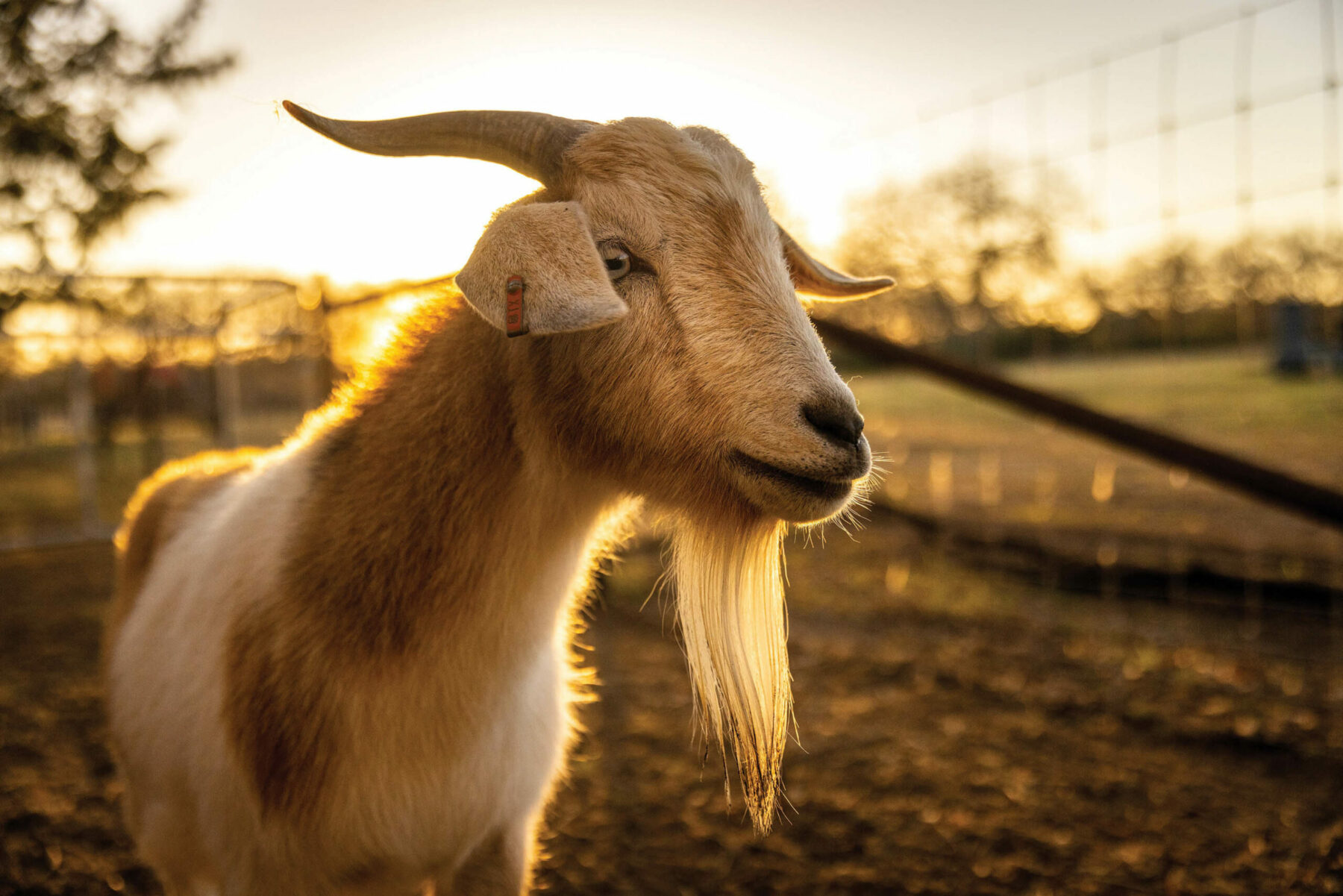
Last year, Riggs had a similar experience working with Wendell, a special needs cow, who passed away after eight months. Riggs says losing Wendell jump-started her commitment to each AFS animal in which she gets to be a part of something bigger than herself.
“These animals are so different from humans because they represent pure innocence. There’s no malice in (them),” Riggs says. “I’m doing my best to foster and promote (their) innocence.”
Now, when an animal dies, the team remembers there is more healing and beauty to come.
“We, as a society, have blocked out (animals’ intelligence and emotions) and not given them the ability to have trauma or heal,” Chris says. “Because it’s easier to whitewash them as ‘just an animal’ or ‘product’ as opposed to an individual that feels.”
Angela says there’s no shame in that because it’s our tendency as humans, but AFS provides an opportunity to change your mind.
Though many visitors aren’t initially interested in being vegan, Angela says they get to see the animals as individuals, which can start a chain reaction or help people feel connected to another being with feelings.
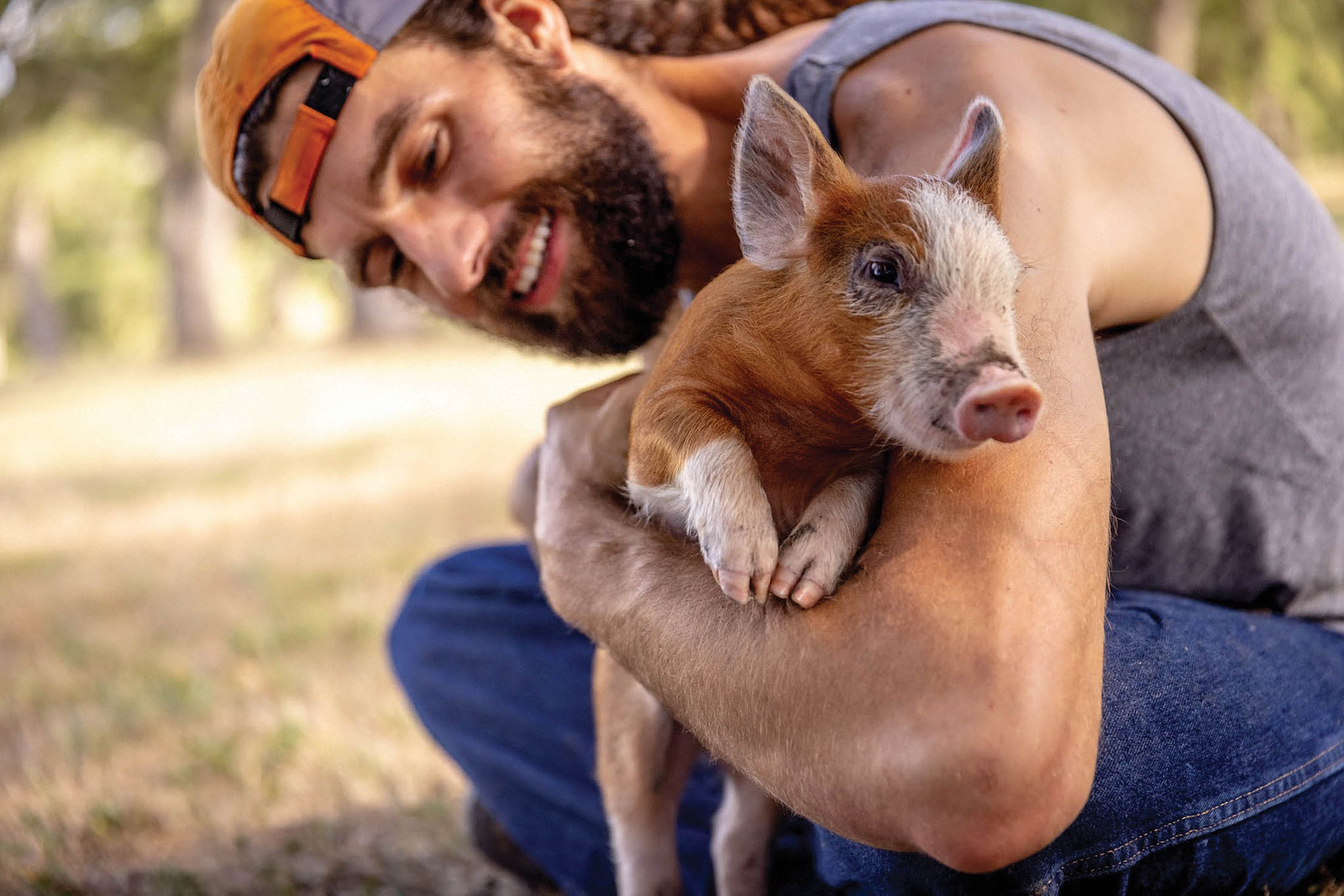
Chris says getting to know animals individually is important for building relationships. Though he already didn’t want to harm pigs, meeting and spending time with Doya sparked a change in him.
“It set in a lot differently for me when I was able to lay in the backyard with Doya, our breath synced, making eye contact,” Chris says. “This connection just becomes deeper and more individualized; we allow people to have that same kind of experience.”
Chris says AFS and other sanctuaries are paving the way for helping farm animals when the goal isn’t butchering, but long-term health.
“(These animals) don’t belong on our plates but in our backyard as our family members,” Chris says.






